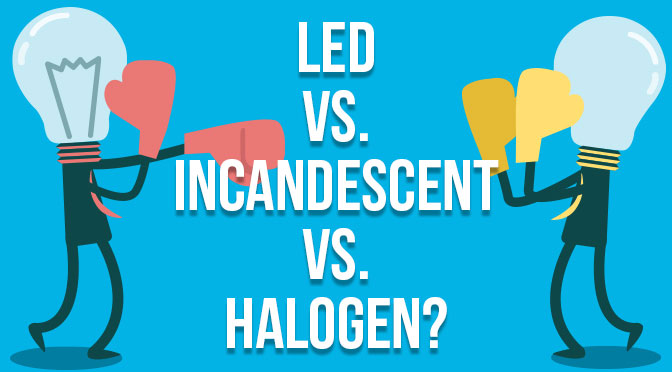 There was a time when incandescent light ruled every household. Created in the early 1800s and made popular by no less than Thomas Edison, it was the considered the first lighting solution to go mainstream. It didn’t cost much to produce incandescent lights, which was probably why it was a big hit amongst commercial buildings, residential units, and even cars.
There was a time when incandescent light ruled every household. Created in the early 1800s and made popular by no less than Thomas Edison, it was the considered the first lighting solution to go mainstream. It didn’t cost much to produce incandescent lights, which was probably why it was a big hit amongst commercial buildings, residential units, and even cars.
This type of lighting worked by super-heating a metal filament wire inside it until it produces light, and that’s the very reason why it didn’t prove to be cost and energy-efficient. Nearly 95 per cent of the electricity incandescent lights used converted to waste rather than light. The lost energy translated to money thrown away, and before long, governments all around the world moved to stop its production.
As a homeowner, where does that leave you? Well, you’d be happy to know that there are newer energy-saving light bulbs you could choose from. Actually, as of 2014, there have been only three major players when it comes to viable lighting solutions – halogen, fluorescent (CFL), and light-emitting diode (LED) lights.
You should know by now, though, that no two light bulbs are the same. Each of the three mentioned previously is unique and comes with their own pros and cons. However, if there’s one thing they have in common, it’s that all are energy-efficient. You would know this by the “Energy Star” marking you’d see on the bulbs themselves. Being energy-efficient means the three are cost-efficient, too, which is just perfect considering five per cent of an average household’s energy budget goes to lighting.
Now let’s get to the nitty-gritty of this article and start breaking down the advantages and disadvantages of each one.
A Whole Lot of Loving with LED Lights
Among the three, led lights are the most efficient choice, but the most expensive, too. Nevertheless, considering the amount of money you’d save in the long run more than makes up for its price. A LED light produces light by allowing electric current to pass through a semi-conductor.
Pros
- LED lights last up to 25 times longer than traditional lights, translating to about 25,000 hours of use
- These only use 20-25 per cent energy compared to others
- You could reduce your lights’ energy consumption by up to 80 per cent if you use LED lights
- Room temperature doesn’t affect a LED light’s efficiency
- There is no warm up time, so a room is easily illuminated(1 microsecond or less) as soon as you turn on a LED light
- LED lights are unaffected by vibrations, cycling operation, shock, and extreme cold weather
Cons
- Initially expensive
- Not appropriate for table lamps as LED lights generate directional lighting
- Voltage sensitivity
Heating it up with Halogen
Halogen bulbs are almost the same as incandescent bulbs in that these create light by running electricity through a tungsten filament. However, unlike an incandescent bulb that makes use of heat sensitive glass envelope containing a mixture of inert gas (nitrogen-argon), a halogen bulb is filled with halogen gas. Basically, when you switch the halogen light on, the tungsten from the filament evaporates to provide illumination.
Pros
- Halogen light is about 10-20 per cent more energy-efficient than an incandescent light
- Like a LED light, halogen light starts instantly, too; no warm-up time is needed
- Halogen light is known to produce bright, crisp light
Cons
- Potential fire hazard – the bulb can burn up to 500°C while the tungsten filament could reach an incredibly high 2500°C
- Not energy efficient – converts only 10 per cent of electricity use for creating light while 90 per cent is turned to heat
- Lasts approximately 2,500 hours of use only
- Generates extra heat especially during warm season
Mercury Rises for Fluorescent
A fluorescent bulb contains mercury, and it creates light by using electric current to stimulate the mercury vapor inside. Basically, the phosphor material that coats the inside of the bulb glows due to the ultraviolet (UV) light produced when the mercury vapor acts up.
Pros
- Typically lasts up to 10,000 hours of use, making it more energy efficient than halogen light, though not nearly as efficient as LED light
- Has a high lumen (amount of light emitted per second) per watt of power efficacy
- Doesn’t give off heat, so it’s more energy-efficient than halogen
Cons
- Requires warm-up time
- More expensive than halogen
- Contains mercury, which is a toxic substance
- Susceptible to changes in weather, sensitive to vibrations and shock
- Emits UV radiation
At the end of it all, the choice of lighting for your home rests entirely on you. At any rate, the comparisons provided here would help you choose the one that will give you the best value for your money.






